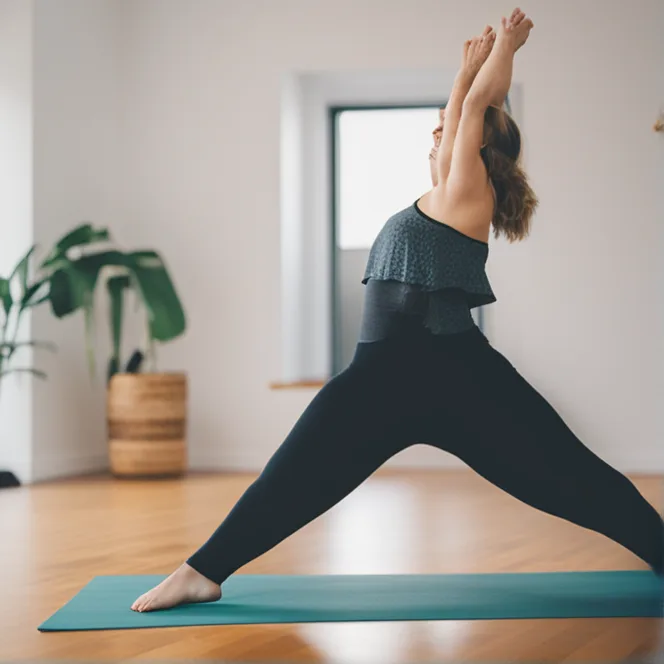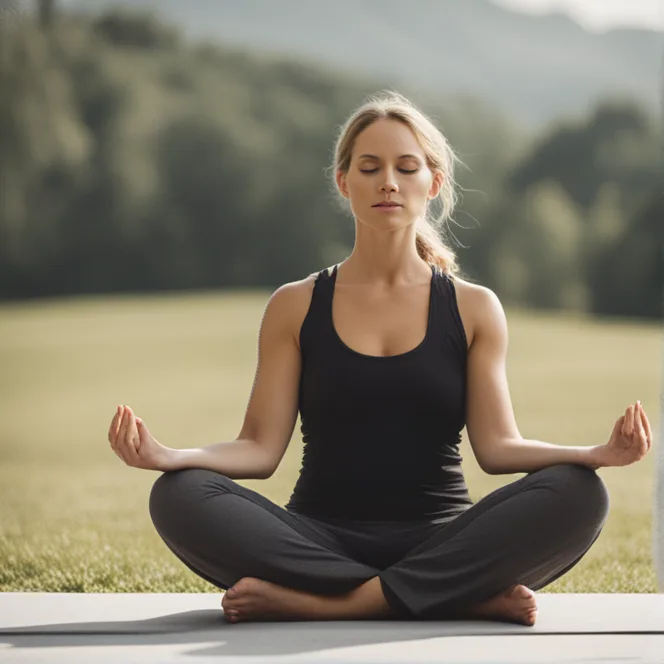
Exploring The Differences: Meditation vs. Yoga
Delve into the unique practices of meditation and yoga, their benefits, differences, and how they complement each other.
article by Hina Kurosawa
What Is Meditation
Meditation is an ancient practice that has been part of various cultures and traditions around the world. At its core, meditation is a method for training the mind to achieve a state of focused awareness and mental clarity. Through techniques like mindfulness, or concentrating on the breath or a mantra, practitioners aim to still the incessant chatter of the mind. This act of internal focus can reduce stress, improve emotional health, and lead to a deeper sense of peace and well-being. Unlike physical exercises, the essence of meditation lies in its mental discipline and the exploration of consciousness.

The Essence of Yoga
Yoga, originating from ancient India, is more than just a series of physical postures or asanas; it's a holistic discipline involving physical, mental, and spiritual practices. While modern yoga often emphasizes the physical aspect, traditional yoga integrates moral codes, breathing techniques (pranayama), and meditation. The aim is to promote balance in the body, mind, and environment, ultimately leading one to a state of enlightenment or self-realization. Yoga supports physical fitness, but its ultimate goal is much broader, seeking to harmonize all aspects of human existence.

Comparing Practices
At first glance, meditation and yoga may appear similar due to their ancient origins and spiritual roots. However, meditation is primarily a seated practice focused on the mind, while yoga, especially in its Western form, involves a wide range of physical movements and postures. While yoga can be an entirely physical practice, it often includes a meditative component, especially during the cooling down phase or when holding poses. In contrast, meditation is typically static, with an emphasis on mental concentration and inner silence.

Physical vs. Mental Focus
Meditation seeks to transcend the physical experience by cultivating an attentive and ongoing awareness of thoughts and sensations without attachment. It's an inward journey requiring minimal physical involvement. Yoga, conversely, utilizes the body as a means to achieve mental and spiritual goals. Each asana is designed to prepare the body for prolonged periods of meditation and enhance the flow of energy. Yoga practices also contribute to improved flexibility, strength, and balance.
Interconnected Benefits
While distinct in nature, meditation and yoga offer complementary benefits. Meditation can deepen the mind-body connection that practicers of yoga seek, and yoga can enhance the physical comfort necessary for prolonged meditation. The breathing techniques used in yoga also serve to settle the mind, which is advantageous for meditation. Together, they form a symbiotic relationship, each practice enhancing the benefits of the other, and frequently practitioners are encouraged to include both in their routines for a holistic approach to wellness.

Integrating Yoga and Meditation
For those embarking on the journey of self-discovery and wellness, integrating both yoga and meditation into one's daily routine could maximize the advantages of each practice. One could start with yoga to prepare the body and then ease into meditation while the mind is already beginning to quiet down from the yoga practice. Alternatively, one could meditate first to center the mind, followed by yoga to engage the body. The fluidity and versatility of both practices mean they can be tailored to fit individual preferences and needs.
Harmonizing Body and Mind
In closing, while meditation and yoga have distinguishing aspects, they are not mutually exclusive. Meditation focuses on the mental realm, offering tranquility and introspection, whereas yoga provides a comprehensive system involving physical health and, like meditation, mental and spiritual well-being. Both are powerful tools for enhancing overall quality of life, and when used collaboratively, meditation and yoga nurture both the mind and body in a balanced and holistic manner.
Published: 12/6/2023
Modified: 12/6/2023
More predictions
Come back here soon to learn more about yourself and your future


Meditation: Beyond Mere Relaxation
Explore how meditation transcends being merely a relaxation technique to offer profound benefits for mind, body, and spirit.


The Synergy Of Meditation & Mental Health
Exploring the potential of meditation as a complementary or alternative approach to traditional therapy in mental health and wellbeing.


Meditation & Mindfulness: Are They One & the Same?
Delve into the similarities and differences between meditation and mindfulness to understand how both practices can contribute to a more serene life.